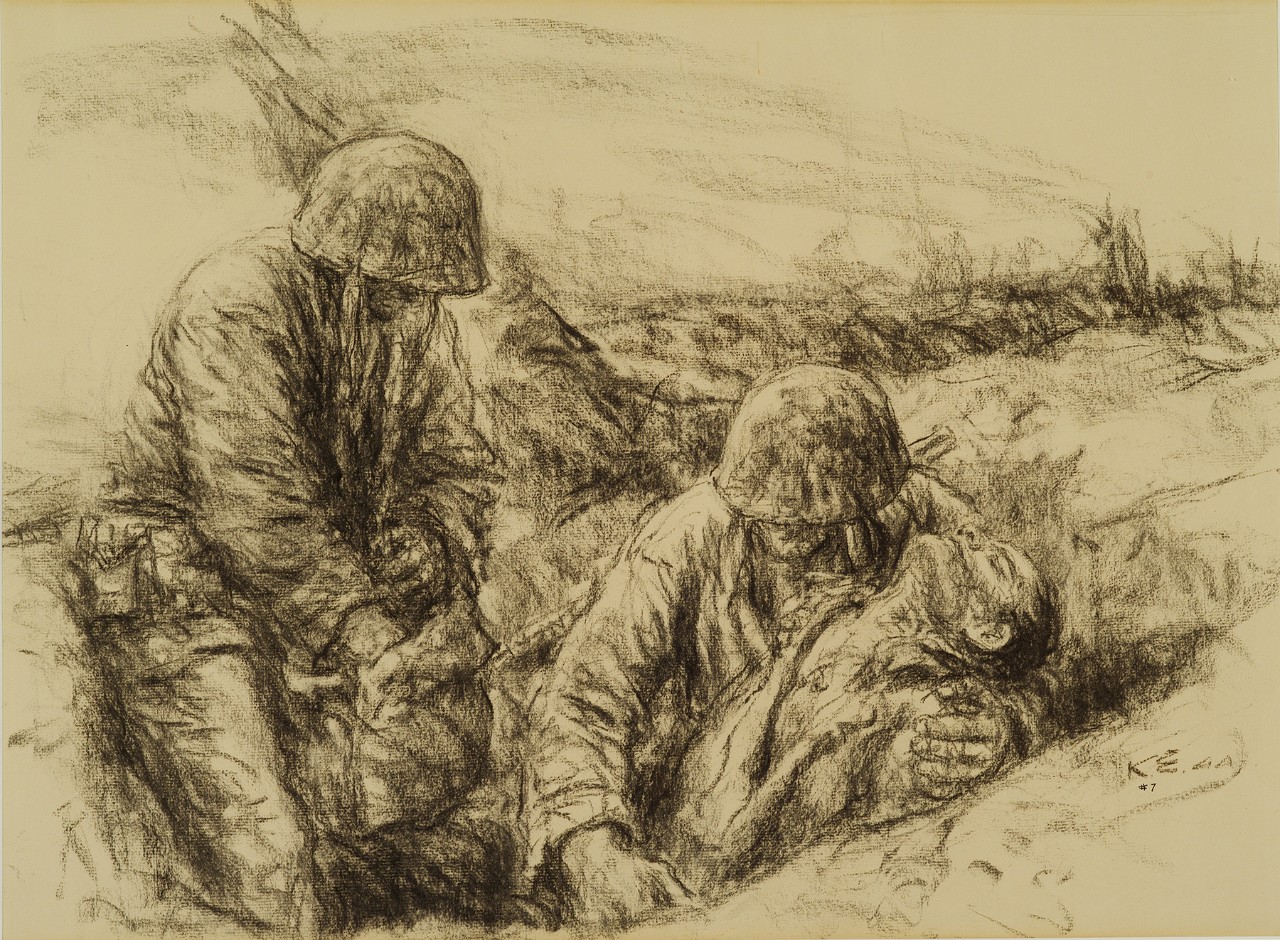Foxhole Relationships at Work: How Connection can arise out of Conflict*
by Kent Johnson, J.D., Senior Corporate Advisor, Religious Freedom & Business Foundation
Part of the blog series, Authenticity & Connection
Now we’re going to explore a different facet of Freedom of Religion and Belief (FoRB). We’ve extolled the benefits of freeing individuals to “bring their whole selves to work,” the desirability of making people feel welcomed and valued for who they are, and the merits of transparency and deeper interpersonal knowledge. It all sounds warm and friendly, friction-free. Now we’ll turn our attention to conflict, and not just the appearance of conflict that’s readily resolved to everyone’s satisfaction.
Conflict is often seen as a force for division. It can drive people who are “alike” to shift blame onto those who are “different.” It’s been known to promote an ethos of “every man for himself.” But today, I’d like to begin to probe how, through times of conflict and trouble in diverse workforces, FoRB is helping build civility, authenticity and connection among those who are different.
It’s no secret that conflict and pressure can drive extraordinary accomplishments. Especially in diverse countries like the US, conflict throws diverse people together in proverbial foxholes, where necessity compels cooperation and task-related loyalty. Military conflict, in particular, ironically drives some of civilization’s greatest technological progress. Also ironically, war can advance cultural tolerance among colleagues. For instance, WW 2 occasioned many positive interracial and interfaith friendships among the troops that didn’t end on VJ Day. Soldiers who had absolutely nothing in common were thrust together in literal or figurative foxholes, in crisis. Many soldiers came to learn each others’ core identities and beliefs — different as they were from their own — and yet emerged from those foxholes as fast, lifelong friends.
Luke Ryan is a case in point. While serving in Afghanistan in 2013, he and his fellow Army Rangers were ambushed. Four were killed. In an interview recently published on by War and Life: Discussions with Veterans (see YouTube), Luke spoke of the awfulness of combat. And yet he missed knowing that he had to be completely trustworthy, and knowing that he could trust the others. “When you’re in a life or death situation, then every moment is charged with purpose,” he says. “You’re there for the mission and the people you’re with. The people are what you care about more.”
Don’t misunderstand: I am no advocate of war! I’m simply posing the question: What might we learn from collegiality and trust among diverse soldiers that would help us advance civility in our diverse workplaces? How are foxhole relationships among diverse colleagues forged at work? How do people really come to know about and begin to care for one another?
How do you feel when you know that someone at work trusts you and is depending on you? How do you feel when you know that your coworker would selflessly help you, even at considerable personal cost? Do the “foxhole situations” at work leave you feeling valued? Do they help you learn to value your coworkers?
Do the conflicts and stresses of everyday work energize you? Do they help you come to grips with what you truly believe: the core principles, values and beliefs that define who you really are? Do they move you to a deeper resolve to act authentically and consistently with coworkers, in accordance with those beliefs?
My point is simple: The conflict and friction that’s inevitable at work presents opportunities to build relationships with our coworkers. The world’s current divisiveness and the isolation we’ve experienced due to the pandemic heighten the need for deeper, more trusting personal connections. Workplaces are crucibles where civility can flourish, provided we don’t quash communication about what people consider their core identity.
This is not just about your workplace. Over time, the positive byproducts of civility among diverse people in workplaces can spread through the entire world, with lasting positive effect long after particular battles have ended.
We’ll probe this theme more in coming weeks, as we continue to unpack the various ways that FoRB spurs authenticity, trust and friendship in the workplace. Your thoughts are welcome!
Join the discussion on LinkedIn or Facebook.
And join us at the Feb. 9-11 Faith@Work conference where this and many other important topics will be discussed!
*Special thanks to Preston Jones, Ph.D., professor of history, for his inputs on relationships in warfare.

